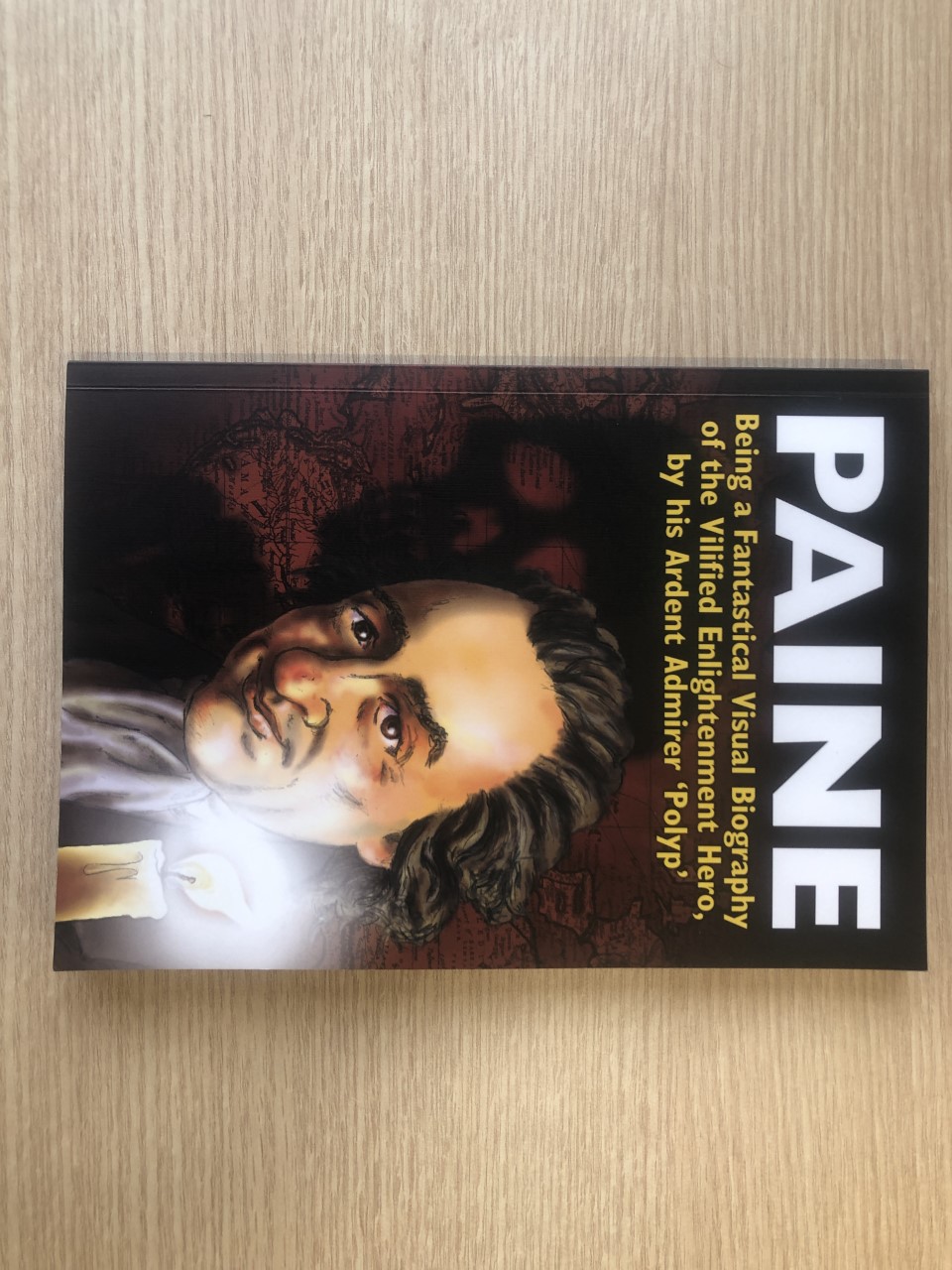An exciting and unique introduction to the life of Thomas Paine
Posted: Thu, 1st Sep 2022 by Helen Nicholls
Paul 'Polyp' Fitzgerald's Paine: A fantastical visual biography is a new graphic novel on the life of Thomas Paine, a key figure in the history of secularism. Helen Nicholls explores how the book's unique approach helps keep Paine's story – and legacy – alive.
"He who dares not offend cannot be honest", wrote Thomas Paine in response to a critic. Paine's determination to speak his mind had serious consequences. In 1792, the British Attorney General prosecuted Paine for seditious libel for his book, The Rights of Man, which argued for a constitution based on democracy and human rights. Paine avoided imprisonment by escaping to France but his booksellers and publishers each received a sentence of three years' imprisonment. Paine was burned in effigy throughout England. He declared that the government had "honoured [him] with a thousand martyrdoms".
Paine's advocacy of freedom of expression and human rights is just as relevant today: religious fundamentalism continues to oppress and subjugate individuals, communities and societies around the world. Yet the life of Paine is not well known outside academic circles.
However, a new "visual biography" of Paine by cartoonist Paul Fitzgerald, also known as "Polyp", seeks to remedy this by telling his story in graphic novel format. Polyp said he produced Paine: A fantastical visual biography "as a way of paying homage to the world's least known revolutionary freethinking hero, and hopefully rescuing him from oblivion".
While Paine was a deist, believing in non-interventionist creator, his legacy has been largely preserved by atheists and secularists. In keeping with this tradition, the National Secular Society was a contributor to Polyp's crowdfunder to produce Paine's biography.
The book is narrated entirely through extracts from historical sources. Many are quotes from Paine's own writings. The rest come from his contemporaries, both supporters and detractors. It is beautifully illustrated and gives a vivid portrayal of its settings.
Most panels faithfully depict Paine's era - but with an irreverent streak. Paine is portrayed in one panel as Mr Spock, while another places him on the cover of Charlie Hebdo, reminding the reader that the struggle for the freedom to criticise religion persists to the present.
Paine would not have called himself a secularist as the word did not exist in his lifetime. However, he espoused the principles that form the basis of secularist thought. His greatest skill was his ability to communicate his ideas to the general public. But he was a victim of his own success as the popularity of his ideas and the threat they posed to the political and religious establishment meant that he was widely hated in his lifetime. The graphic novel brings this struggle to life, showing Paine as a brilliant but obstinate man who suffered personally for his work.
The book ends on an optimistic note, with quotations from admirers ranging from Abraham Lincoln to Christopher Hitchens. Polyp also includes quotations from G.J. Holyoake, who coined the term "secularist", and former National Secular Society President G.W. Foote, who said of Paine: "The keenness of his intellect was matched by the brilliancy of his imagination. His name stands for mental freedom and moral courage".
Paine: A fantastical visual biography is an excellent introduction to Paine for anyone interested in the history of secularist thought in an entertaining and accessible format.
Paine: A fantastical visual biography is available on Polyp's website here.
Watch NSS council member and historian Bob Forder tell Paine's story:
What the NSS stands for
The Secular Charter outlines 10 principles that guide us as we campaign for a secular democracy which safeguards all citizens' rights to freedom of and from religion.


